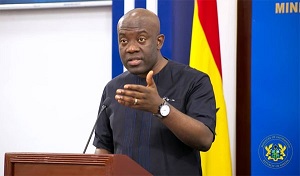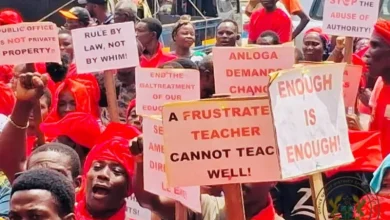
The Ranking Member on the Economy and Development Committee in Parliament, Kojo Oppong Nkrumah, says the latest staff-level agreement between the International Monetary Fund (IMF) and the Government of Ghana validates the economic reforms initiated under the former New Patriotic Party (NPP) administration.
Speaking on the Asaase Breakfast Show on Wednesday (16 April), the Ofoase Ayirebi MP described the agreement as a strong affirmation that the economy was on a path to recovery before the change of government in January 2025.
“What the IMF has done is to affirm the position that the NPP administration took—that contrary to the NDC’s narrative of mismanagement, the Ghanaian economy was progressing on key parameters under our economic programme,” Oppong Nkrumah said.
He was reacting to a statement issued by Mohammed Amin Adam, the Minority’s spokesperson on finance, which welcomed the IMF agreement but stressed that the gains stemmed from the NPP’s policy framework. The IMF, in its 13 April statement, confirmed that Ghana’s economic performance had exceeded expectations in several key areas, including growth, the financial sector, and the external sector.
According to Oppong Nkrumah, “Growth for 2024 was projected at 3.1% but ended up at 5.7%. Our external sector, export earnings, and reserves also outperformed projections. These achievements were the result of disciplined policies we put in place before leaving office.”
He also addressed recent comments by Finance Minister Cassiel Ato Forson, who cited a GHC 49 billion arrears figure to suggest a fiscal deficit of 3.9%—a position the IMF contradicted in its latest review. “Even using their own formula, the Fund estimates the deficit at 3.25%, not 3.9%. But more importantly, the IMF says these arrears must be audited before they can be accepted as official data,” he noted.
The former Information Minister criticised the current government for rushing to adjust fiscal data for political gain, warning that such moves could undermine investor confidence. “Don’t be in a hurry to undermine national economic data just to score political points. You end up cutting your nose to spite your face,” he cautioned.
Oppong Nkrumah also questioned the NDC government’s commitment to fiscal discipline, pointing out that expenditure had increased from GHC 250 billion to GHC 290 billion in the 2025 budget.
“While we were accused of overspending, the NDC is now spending even more. And the increase is not going into productive sectors, but into areas like the Office of Government Machinery, where the compensation budget has ballooned from GHC 327 million to over GHC 2.7 billion,” he alleged.
He reiterated the NPP’s position that the private sector must be incentivised to participate in public infrastructure development to reduce the burden on the public purse.
“This government says they don’t see how PPPs will work in this climate. But private capital is crucial—discouraging investors, like refusing mining lease renewals, sends the wrong signals.”
Oppong Nkrumah further warned that inflation targets may not be met if the government fails to sustain the disinflation path initiated under the NPP. “We were on course to bring inflation to 11% by the end of 2025. If they truly believe they can do better, we should see 7–9%, not signals of backsliding.”
On energy, he maintained that the NPP performed far better, citing a more stable power supply during its tenure. He challenged the government to prioritise efficiency in the power sector and pursue a transparent model for private sector participation.
Regarding the recent 14.75% hike in electricity tariffs, which the IMF praised as necessary to reduce energy sector shortfalls, Oppong Nkrumah disagreed with the decision. “It is unconscionable to pass on capacity charges for unconsumed power to consumers. The government has chosen to burden Ghanaians with increased tariffs—they will live or die by that choice,” he said.
He concluded by urging the government to tone down the rhetoric and focus on sustaining the progress already made. “Admit the gains, build on them, and stop using propaganda to mask policy missteps,” he stated.




